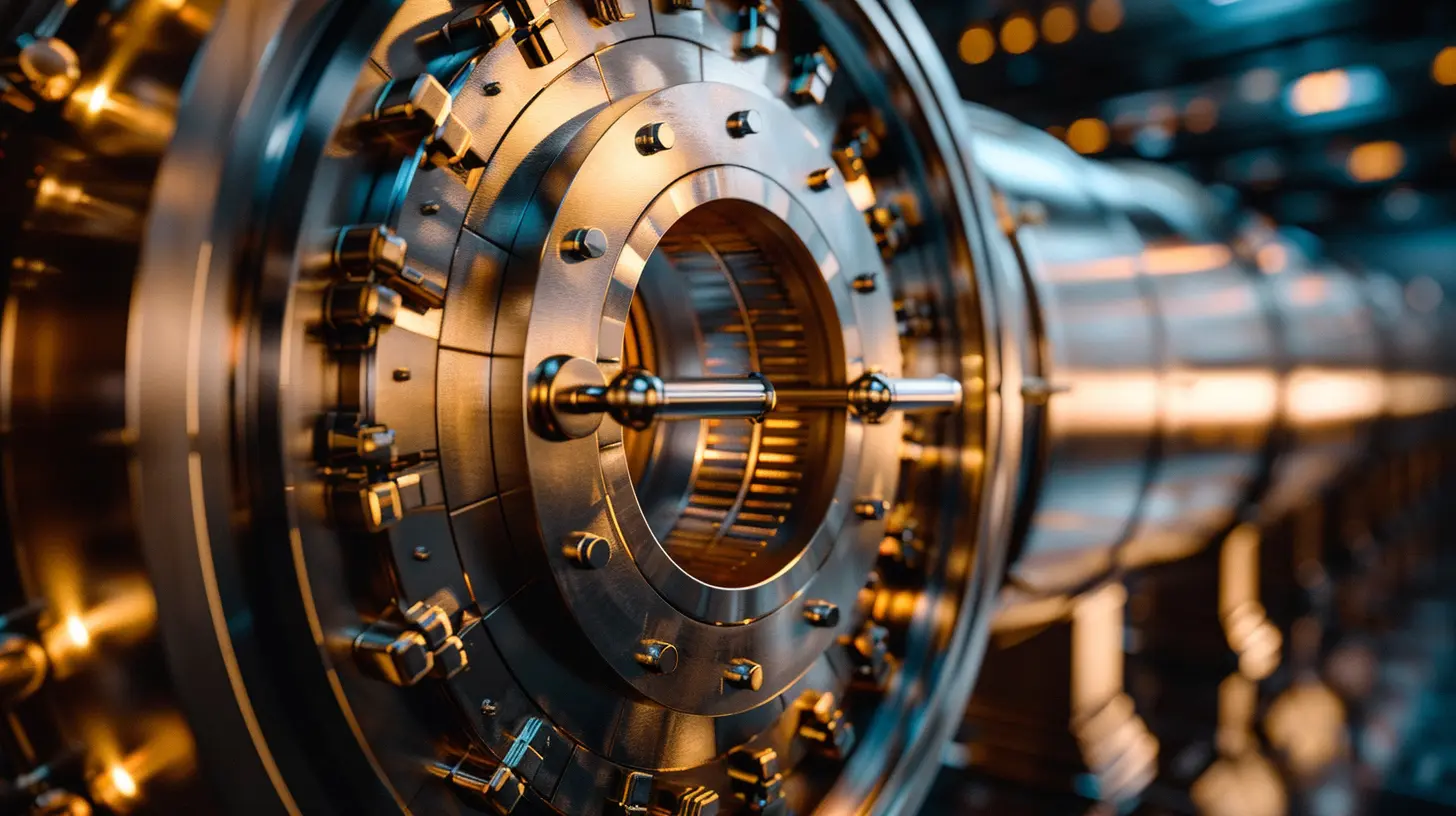Asset Protection for Cryptocurrency Investments: Best Practices and Risks
4 July 2025
So, you’ve dipped your toes (or full-on dove in) into the wild world of cryptocurrencies. Bitcoin, Ethereum, maybe even a little Doge for fun? You’re not alone. Crypto’s gone from geek hobby to serious money real quick. But here’s the kicker—if you don’t protect your digital stash, you could lose it faster than Elon Musk tweets.
Let’s get real for a second: Crypto isn’t some magic internet money immune to theft or disappearance. In fact, it’s often more fragile than traditional assets. So if you're not playing defense, you're basically showing up to a gunfight with a wet noodle.
Ready to protect your coins like a boss? Let’s dive deep into the best practices (and the juicy risks) of asset protection for cryptocurrency investments.
Why Asset Protection in Crypto Is Non-Negotiable
Let’s not sugarcoat it—crypto is the Wild West of finance. It’s exciting, decentralized, and rebellious… but it’s also prone to scams, hacks, and human error. Traditional banks have laws, protections, and safety nets. Crypto? Not so much.Let’s break down why protecting your digital riches is crucial:
- No Chargebacks: Once you send crypto, it’s gone. Forever. No refunds, Karen.
- Hackers Love You: Crypto is like catnip for cybercriminals.
- No Bank to Call: Forget about customer service. You’re the bank now.
- Regulations Are Still MIA: Laws are murky. Protections are… meh.
Still feeling lucky? Let’s fix that.
Best Practices for Keeping Your Crypto Safe
Alright, now we’re talking. Let’s armor up that digital wallet with some savvy strategies.1. Use a Hardware Wallet (A.K.A. a Crypto Vault)
Think of a hardware wallet like a Fort Knox for your Bitcoin. It’s a physical device that keeps your crypto keys offline. Translation? No internet connection = no hacking.📍 Popular Picks: Ledger Nano X, Trezor Model T
🚫 What NOT to do: Leave your assets chilling in an exchange wallet like it’s 2017.
2. Say No to Sketchy Exchanges
Let’s face it, not all exchanges are created equal. Some are legit; others make Fyre Festival look organized.Stick to reputable platforms like Coinbase, Kraken, and Binance (but with caution). Always enable two-factor authentication (2FA), and never store large sums on exchanges.
3. Go Wild with Password Security
If your crypto password is “bitcoin123,” just stop reading and go fix that. Now.Use a password manager like 1Password or LastPass. Create a long, random, complex phrase with numbers, symbols, and upper/lowercase letters. And yeah—don’t reuse it.
Hot tip: Enable biometric logins if available. Your face is tough to hack.
4. Backup Like a Pro
If you lose access to your wallet without a backup of your private keys or seed phrase, it’s game over. Think of seed phrases as the master key to your crypto kingdom.Write it down (on actual paper), store in a fireproof safe, and never—NEVER—take a screenshot. Cloud storage? That's asking for trouble.
5. Diversify Storage
Would you store all your gold in one chest and then bury it in an obvious place? Didn't think so.Split your assets. Use a mix of hot wallets (for small, frequent trades) and cold wallets (for big holdings and long-term storage).
Passwords, keys, access points—diversify EVERYTHING. It's like not putting all your guac in one burrito.
6. Multi-Sig Wallets (Sharing Is Caring… and Safer)
Multi-signature wallets require multiple approvals before a transaction goes through. Kind of like needing two keys to launch a missile.This adds a layer of protection, especially for businesses or partnerships. Even if one person’s keys get hacked, the crypto stays secure.
Legal Structures for Supercharged Protection
Ready to level up? Let’s talk legal armor.1. Form an LLC or Trust
One way to protect your crypto is by wrapping it in a legal veil like an LLC (Limited Liability Company) or even a trust.Why? Because if things go south—say someone sues you—those crypto assets might be shielded.
Trusts also help with estate planning. Yeah, death is a buzzkill, but imagine your loved ones losing your crypto because you didn’t plan ahead? Not cool.
2. Offshore Accounts
This one’s not for beginners, but wealthy investors often use offshore structures in crypto-friendly jurisdictions (hello, Cayman Islands).It’s complicated, pricey, and needs a solid legal team. But it can offer great asset protection and some tax perks (although Uncle Sam is always watching).
⚠️ Important: Don’t even think about evading taxes. The IRS is watching and crypto is NOT invisible.
Common Risks That Can Ruin Your Crypto Dreams
Okay, let’s pivot and scare you a little—just enough to keep you on your toes. What are the main threats to your crypto empire?1. Phishing Scams (The Oldest Trick in the Book)
If you thought Nigerian princes were bad, wait until you see the new era of phishing. You’ll get emails, texts, or DMs that look super legit—but they’re traps.Click one bad link, enter your keys or password, and poof—it’s gone.
Rule of thumb? Never click anything sketchy. Always double-check website URLs and NEVER share your private keys. Not even with your mom.
2. SIM Swapping Attacks
Hackers can hijack your phone number, take over your messages and 2FA logins, and drain your accounts. It’s scary—and it happens more than you think.Avoid using SMS for 2FA. Use authenticator apps instead. And lock down your mobile account with a PIN or security question only you know.
3. Rug Pulls and Scam Coins
Ever heard of “rug pulls”? It’s when developers hype a new coin, get investors pumped, and then disappear with your money. Yeah, crypto isn’t all rainbows and Lambos.Do your homework before investing. If it sounds too good to be true (I’m looking at you, 1000% returns), it probably is.
4. Exchange Hacks
Even big boys like Mt. Gox and Bitfinex have been hacked. Exchanges are prime targets because they hold tons of users' coins.That’s why we said it once, and we’ll say it again—don’t park your crypto on exchanges. Use them like a public restroom: get in and get out.
5. Human Error
Lost keys. Forgotten passwords. Transferring to the wrong address. We've all had "oops" moments—but with crypto, that can mean losing thousands.Take your time. Double-check every transaction. And for the love of blockchain—WRITE YOUR SEED PHRASE DOWN.
Estate Planning for Crypto: Because Mortality Is Real
Look, no one likes talking about death, but imagine leaving behind a crypto fortune… that no one can access. Dark, right?Here’s what to do:
- Include your crypto in your will or estate plan.
- Store your wallet access instructions securely (but NOT in the will itself!).
- Work with an estate planner who understands crypto.
Because what’s the point of building moon-level wealth if it vanishes when you’re gone?
Insurance for Crypto—Say What?
Believe it or not, there are now insurance options for crypto. Not super common, and not cheap, but if you’re sitting on six or seven figures worth of Bitcoin, it’s worth a look.Some exchanges offer limited insurance for your funds (Coinbase does), but it’s not blanket coverage. For serious investors, looking into private insurance firms that handle digital assets might be smart.
Red Flags: When You Need to Beef Up Security
Still not sure if you need to triple-lock your crypto? If any of these apply to you, it’s time:- You're holding more than $10,000 in crypto.
- You’ve mentioned your investments on social media (stop doing that, BTW).
- You make frequent trades or transfers.
- You’re managing crypto for others (like clients or businesses).
- You're building a long-term portfolio (HODLing like a legend).
If you said “yes” to any, tighten up that security ASAP.
Final Thoughts: Your Crypto, Your Responsibility
Here’s the cold hard truth: In crypto, there’s no safety net. No FDIC. No hotline. If your coins get swiped, that’s it.But the good news? You have the power to protect yourself. With the right tools, a little paranoia (the healthy kind), and a dash of common sense, you can build a digital fortress that even the savviest hackers would cower at.
So be smart. Be safe. And remember—fortune favors the well-protected.
all images in this post were generated using AI tools
Category:
Asset ProtectionAuthor:

Angelica Montgomery
Discussion
rate this article
1 comments
Melody McCray
Important insights on safeguarding crypto assets; awareness of risks is crucial.
July 28, 2025 at 12:15 PM

Angelica Montgomery
Thank you! It's essential for investors to stay informed about risks to effectively safeguard their crypto assets.


